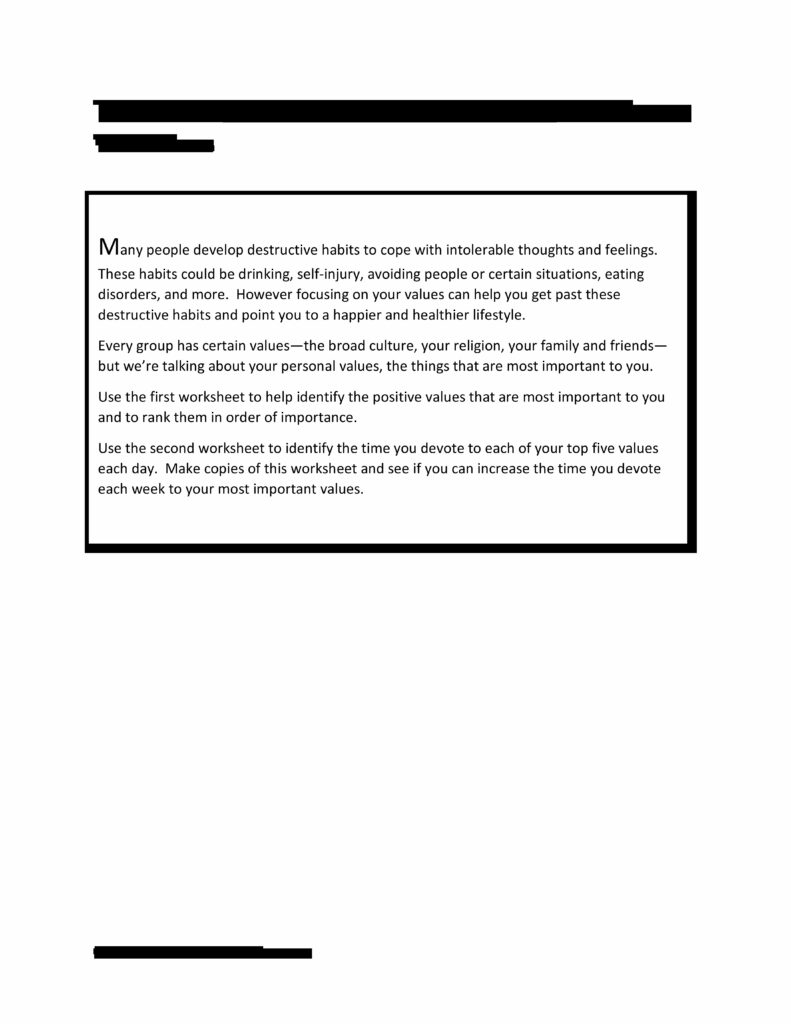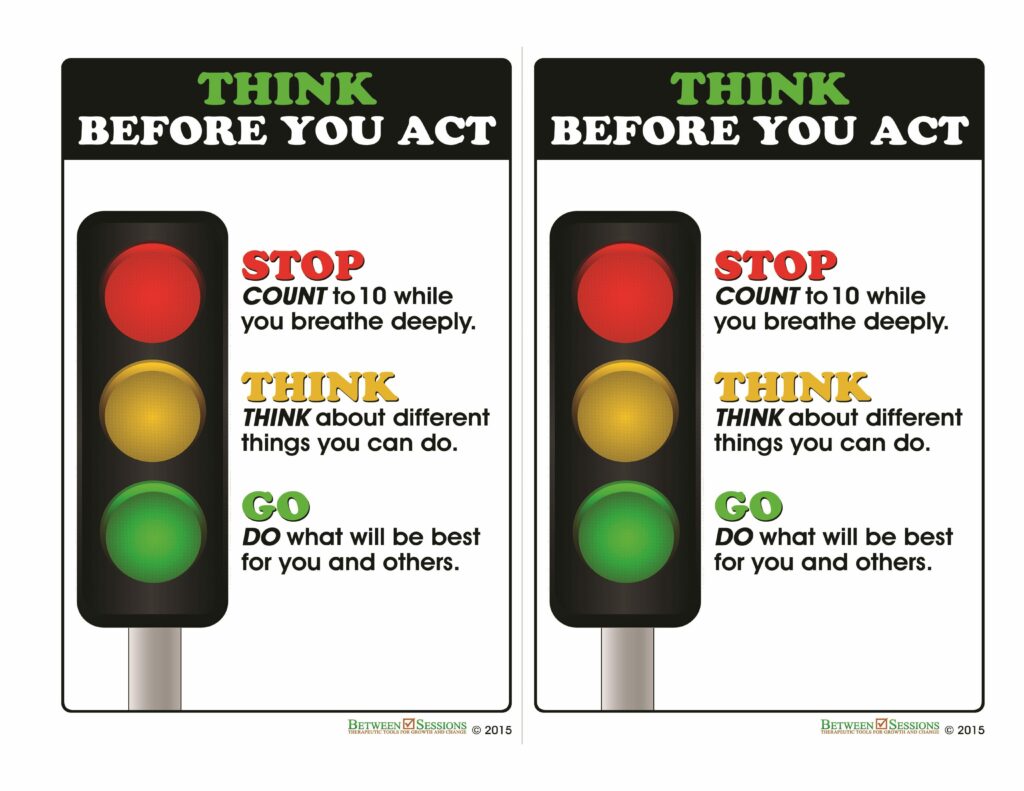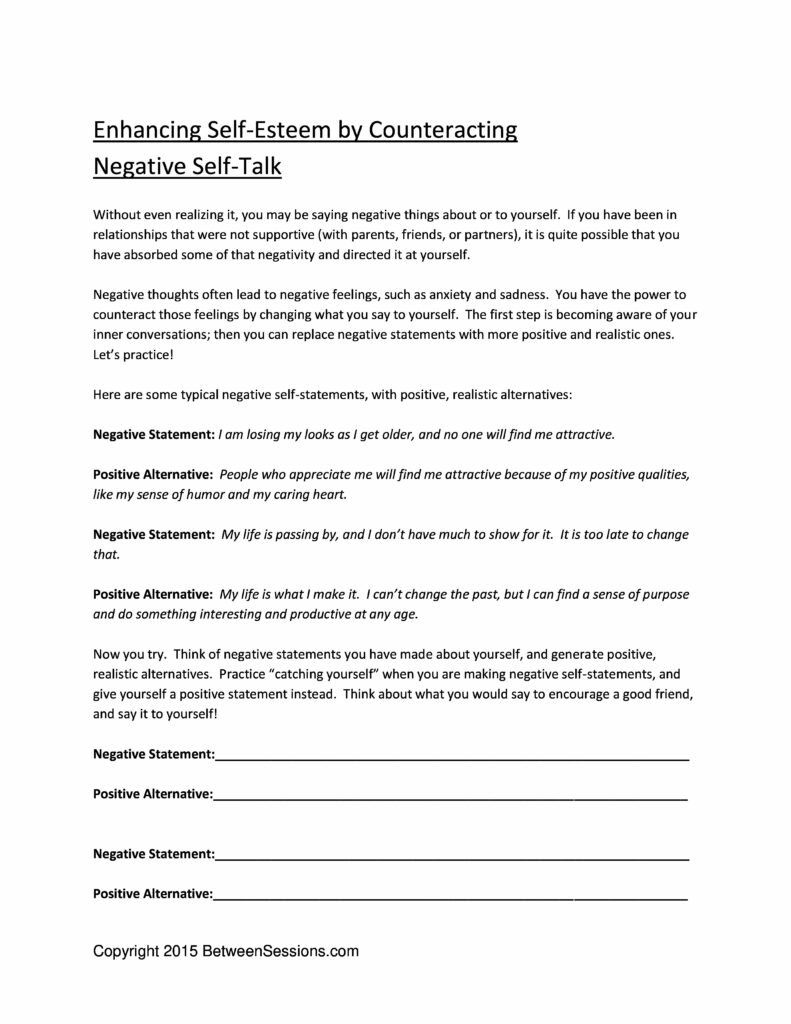This worksheet is designed to help people think about their emotional strengths and how they can bring these strengths to their current problems. It contains a list of strengths for clients to rate, as well as questions about how significant others perceive the person’s emotional strengths. (0415, ACT, DBT)
Some people spend a lifetime trying to avoid the things that cause upsetting thoughts, feelings, sensations, or memories. This can help them manage their symptoms, but it can simultaneously lead to a very restricted and unhappy life. This worksheet is designed to help people identify the things that upset them, think about the things they do to avoid being upset, and think about what life would be like if they could overcome their symptoms. This worksheet can be used as a prelude to Mindfulness and other techniques that help people accept and overcome their symptomatic behaviors. (CBT, DBT, 0415).
This worksheet helps people deal with difficult thoughts and feelings by having them focus on their core values rather than rely on self-destructive symptoms. There are two forms to complete, one to help people identify their core values and another to help them determine how much time they spend in activities that reflect these values. (0415, ACT)
This form can be used to give people a visual reminder to stop and think before they act. This is particularly helpful for kids and teens, but is a useful technique for adults too. (0315)
Some people are prone to becoming overwhelmed by their emotions. Usually caused by specific triggers, their intolerable level of emotions may then lead to symptoms, such as panic, alcohol or substance abuse, self-injury, or depression. This worksheet is designed to help people develop a set of positive coping techniques that can help them tolerate difficult emotions and refrain from self-defeating behaviors. (addiction, self-injury, impulsivity, prevention, 0315)
This workbook consists of 17 interactive activities to help teens develop a better body image. This resource was developed to help all teens develop a healthy body image but would be particularly appropriate for teens who have eating disorders or other mental health problems related to a poor self-image.
This worksheet is designed to help people identify their moods during the day and talk about their feelings to someone else. Copies should be made, and the worksheet should be used for a minimum of seven days. (0315)
This worksheet is intended to help clients who self-injure learn to avoid the objects they commonly use to hurt themselves. It will be most effective when used with a comprehensive safety plan. Form Type: PDF (0215)
This worksheet can help people identify and change the negative self-talk that can lead to low self-esteem.(self-esteem, negativity, 0215)
Grounding techniques are often recommended for clients who feel overwhelmed by their thoughts and feelings. This pdf includes a worksheet to help clients practice this technique and a link to a video demonstration of the technique. (1214)










